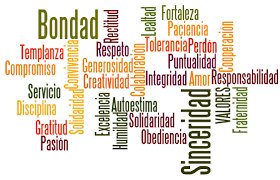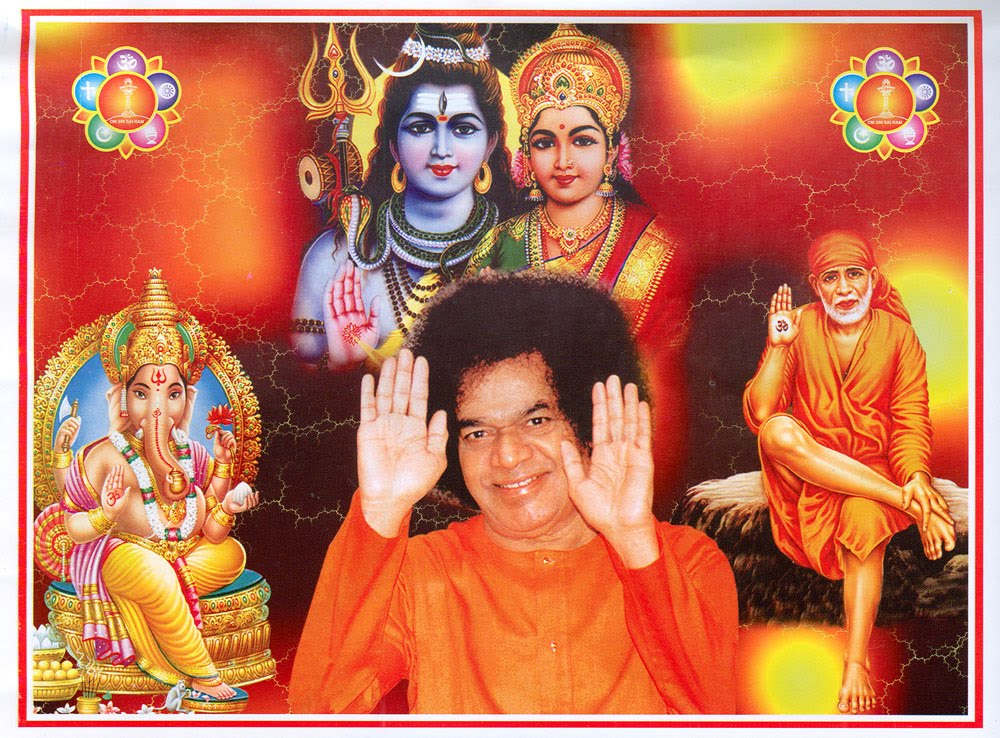"Tattva Sameeksha"_ "Sanatana Dharma dice: todo y todos son Divinos"_08 de Febrero de 2019.

- Sri Madhusudan Naidu En 'Tattva Sameeksha' (08 de Febrero de 2019), Aldea Sathya Sai, Muddenahalli.
('Tattva Sameeksha' es una sesión de charla de eminentes oradores a los residentes del ashram de Sathya Sai Grama en Muddenahalli).
"Sanatana Dharma dice: todo y todos son Divinos; si eres Jada (inanimado) o Chaitanya (animado); Ya sea móvil o inamovible, todo es Divino ".
------
Por cierto, nos encontramos en Kumbh Mela, Prayagraj, el mismo día del Día de la República de la India. Y ese día, Swami Chidananda Saraswati del ashram Parmarth Niketan, Rishikesh, había organizado una pequeña ceremonia de izamiento de la bandera. Él invitó a Swami, y yo tuve el privilegio de hacerlo en nombre de Swami. Más tarde, Chidananda Ji habló principalmente sobre el patriotismo, el sacrificio de los soldados que desafían temperaturas bajo cero en el Himalaya y protegen los límites de este país. Él fue muy expresivo acerca de los soldados del país, lo cual es muy cierto, correcto, real, especialmente después de tantos conflictos en torno a esta nación en particular, que el sacrificio que hacen nuestros soldados es absolutamente invaluable. Luego fue el turno de Swami para hablar. Estaba pensando en lo que Swami agregaría al discurso ya dado por Chidananda Ji. ¡Swami lo llevó a otra dimensión por completo! Ese es nuevamente el silbido, el factor x que Swami trae a cada pensamiento que tenemos.
Swami dijo: "En verdad, los soldados valen toda nuestra adoración, admiración y respeto por todo el sacrificio que hacen, incluso por renunciar a sus vidas por el bien de la nación. Protegen los límites de esta nación desde el exterior. Pero una nación no es realmente nada sin su cultura. Las personas que protegen la cultura de este país son los santos y sabios, monjes y sanyasis. Y para Mí, también son tan importantes como nuestros soldados; porque si no trabajan dentro del país y mantienen la cultura, la tradición y la espiritualidad de la India; ¡Sin el alma el cuerpo no es más que un cuerpo muerto!
Swami enfatizó en el punto de que mientras saludamos a los soldados que sacrifican todo en las fronteras para proteger el país, también debemos recordar con gratitud a todos los santos, monjes y todas las personas que se han sacrificado para mantener la cultura de este país y están protegiendo eso. Eso me conmovió mucho porque solo Swami podía pensar así.
Y recordó un aspecto muy importante en la misión de Swami. Hace mucho tiempo, Swami había declarado acerca de las seis fases en su misión. La primera fase es Leela, la segunda es Mahima, la tercera es Upadesha, la cuarta es Vidya, la quinta es Vaidya y estos últimos 16 años están dedicados al establecimiento de Sanatana Dharma. Entonces nadie entendió lo que quería decir al decir eso. ¿Se trata de construir más templos? ¿O realizando más yagnas? Sanatana Dharma o Atma Dharma es hacer que las personas se den cuenta de que son Divinas. Es más que solo el Dharma hindú.
Durante una conversación sobre el hinduismo con Chidananda Saraswati Ji, Swami le preguntó dónde estaba el hinduismo hace 2000 años. ¿Dónde estaba la palabra hindú? Solo por la civilización del Valle de Sindhu, todos los persas y afganos que nos atacaron y cruzaron el río Sindhu, entraron, y no sabían cómo llamarnos porque éramos un grupo tan diverso de personas. Entonces, todos los que vivían al otro lado del río Sindhu se llamaban Sindhus o hindúes. En persa, "Sa" suena como "Ha" y se convierte en hindú. Por lo tanto, se convierte en hindustan. El hinduismo derivó mucho más tarde. Pero en verdad, éramos personas que seguíamos a Sanatana Dharma. Esto es lo que Swami le dijo a Chidananda Saraswati Ji, quienes son pioneros de la religión y la filosofía, especialmente en aquellas partes del Himalaya, muy codiciadas, porque ahí es donde creemos que está nuestra religión hindú, en los valles del Himalaya donde los Rishis, los Santos y los sabios están ahí. Swami dijo: "El hinduismo no es nuestra religión. Verdaderamente, nuestra religión es Sanatana Dharma, que trata más sobre la realización de la divinidad ". Cuando Swami dice; Él dice con tal autoridad que Chidananda Ji dijo: "¡Absolutamente! No Veda, ni Upanishad, ni Purana; en ninguna parte se ha mencionado la palabra hindú o hinduismo. Solo se trata de Atma Dharma, Sanatana Dharma. Se trata de la Divinidad, Brahman. Así es como nuestra cultura ha proyectado la espiritualidad ".
Esa fue la belleza de este diálogo entre Swami y todos estos santos. Una vez más, Swami trae esa dimensión superior a la discusión. Cuando discutían sobre el hinduismo, Swami trajo otra dimensión. Él dijo, es Sanatana Dharma y debe entenderse correctamente. Realmente no es una religión; ¡Es una forma de vida! "Un cristiano, un musulmán o un budista también pueden seguir Sanatana Dharma, al igual que las personas que están en Hindustan porque es una forma de vida. Swami lo definió en una oración, "Sanatana Dharma dice que todo y todos son Divinos; si eres Jada (inanimado) o Chaitanya (animado); Ya sea móvil o inamovible, todo es Divino ".
******************************************************************************************************
- Sri Madhusudan at 'Tattva Sameeksha' (Feb 8, 2019), Sathya Sai Grama, Muddenahalli
('Tattva Sameeksha' is a Talk session by eminent speakers to the Ashram residents of Sathya Sai Grama in Muddenahalli).
"Sanatana Dharma says everything and everyone is Divine; whether you are Jada (inanimate) or Chaitanya (animate); whether movable or immovable, all is Divine".
------
Incidentally, we happened to be at Kumbh Mela, Prayagraj on the same day as Republic Day of India. And on that day, Swami Chidananda Saraswati of Parmarth Niketan ashram, Rishikesh had organized a little flag hoisting ceremony. He invited Swami and I had the privilege of doing it on behalf of Swami. Later, Chidananda Ji spoke mainly about the patriotism, sacrifice of the soldiers who brave sub-zero temperature up in the Himalayas and protect the boundaries of this country. He was very vocal about the soldiers of the country which is very true, correct, real especially in the wake of so many conflicts around this particular nation, the sacrifice that our soldiers make is absolutely invaluable. Then it was the turn of Swami to speak. I was thinking what Swami would add to the already given discourse by Chidananda Ji. Swami took it to another dimension altogether! That is again the zing, the x-factor that Swami brings into every thought that we have.
Swami said, "Truly soldiers are worth all our adoration, admiration, respect for all the sacrifice that they do including giving up their lives for the sake of the nation. They protect the boundaries of this nation from the outside. But a nation is truly nothing without its culture. The people who protect the culture of this country are the saints and sages, monks and sanyasis. And to Me, they are also as important as our soldiers; for if they don't work inside the country and keep up the culture, tradition and spirituality of India; without the soul the body is merely a dead body!"
Swami emphasized on the point that while we salute the soldiers who sacrifice everything at the borders to protect the country, we must also remember gratefully all the saints, monks and all the people who have sacrificed to keep up the culture of this country and are protecting it. That touched my heart very much because only Swami could think like that.
And it brought a very important aspect in Swami's mission. Long ago Swami had declared about the six phases in His mission. The first phase is Leela, the second is Mahima, the third is Upadesha, fourth is Vidya, fifth is Vaidya and these last 16 years are dedicated to the establishment of Sanatana Dharma. Then nobody understood what He meant by saying that. Is it about building more temples? Or performing more Yagnas? Sanatana Dharma or the Atma Dharma is making people realize they are Divine. It is more than just Hindu Dharma.
Over a conversation about Hinduism with Chidananda Saraswati Ji, Swami asked him where was Hinduism 2000 years ago? Where was the word Hindu? Just because of Sindhu Valley civilization, all the Persians and Afghans who attacked us and crossed the Sindhu river and came inside did not know what to call us because we were such a diverse group of people. So, all those who lived on the other side of Sindhu River were called Sindhus or Hindus. In Persian, 'Sa' sounds like 'Ha' and becomes Hindu. Therefore, it becomes Hindustan. Hinduism was derived much later. But truly, we were people who followed Sanatana Dharama. This is what Swami told Chidananda Saraswati Ji, the likes of whom are all pioneers of religion and philosophy, especially in those parts of Himalayas, very coveted, because that's where we think our Hindu religion lies, in the Himalayan valleys where the Rishis, Saints and Sages are there. Swami said, "Hinduism is not our religion. Truly, our religion is Sanatana Dharma, which is more about realizing divinity". When Swami says; He says with such authority that Chidananda Ji said, "Absolutely! No Veda, no Upanishad, no Purana; nowhere the word Hindu or Hinduism has been mentioned. It is only about Atma Dharma, Sanatana Dharma. It is about Divinity, Brahman. That is how our culture has projected spirituality."
That was the beauty of this dialogue between Swami and all these saints. Again, Swami brings that higher dimension to discussion. When they were discussing about Hinduism, Swami brought another dimension. He said, it is Sanatana Dharma and it has to be understood correctly. It is truly not a religion; it is a way of life!" A Christian, or a Muslim or a Buddhist can also follow Sanatana Dharma so do the people who are in Hindustan because it is a way of life. Swami defined it in one sentence, "Sanatana Dharma says everything and everyone is Divine; whether you are Jada (inanimate) or Chaitanya (animate); whether movable or immovable, all is Divine".
--
--























